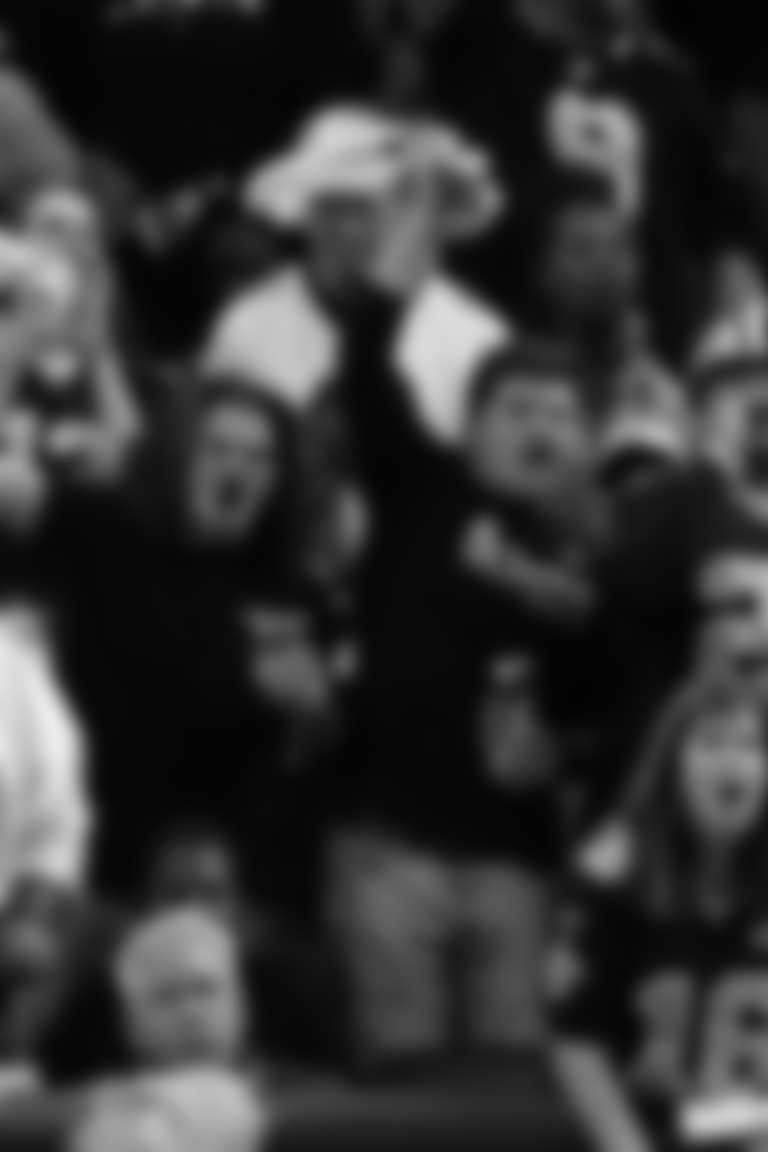New Orleans Saints legend Jed Collins is a certified financial planner today, with a degree in accounting from Washington State. Before he began his second career as a financial adviser, Collins spent seven years bouncing around the NFL with nine teams as a journeyman fullback. His most prominent stretch came with the Saints from 2011 through 2013, when he started 26 games and scored seven touchdowns in the Black and Gold.
Collins spoke about the importance of the fullback position on a conference call with local media Thursday.
"I see the fullback position as a mind-set," Collins said. "When I would be in the huddle, be on the field, our perspective of what we were as an offense changed. We were no longer a high-flying, pass it kind of system, we had a second punch and usually when the regular or the fullback was on the field, it was the first punch. We wanted to intimidate teams into knowing we didn't just have to throw the ball, we could run it at you as well. I felt very strongly when we, the Saints offense, through the last 10 years has been the best is when they were able to establish that kind of threat. I always took it upon myself to be that kind of keystone species of if you eliminate that position, if you eliminate that threat, even though your other tools may get better, you are eliminating an entire element of your ecosystem."
Collins, who appears clean cut and looks to have shed a few pounds since hanging up the cleats prior to the 2015 season, noted that one attribute of a great fullback is willingness to show one's crazy side.

"The fullback to me is definitely an interesting breed," Collins said. "There are two kinds of fullbacks, there are the angry ones and the crazy ones. And if any of you've ever met me, I'm not a very angry guy. So I had to show I was crazy, I grew out my hair, I grew a beard, and I would do little antics and things like that. But it was truly the humbling realization of what the fullback position was. I was never going to be able to stand on a table and say this is a position that you need and that I have the leverage and I'm the power. I knew I was going to, as the fullback, need to be on special teams and need to contribute both in the classroom as well as just being a leader in the weight room. And so it is a really neat position to humble yourself and saying, I am no longer 'the' guy. My job and responsibility is to open the hole or block for 'the' guy.
"As somebody who got the ball a lot in college, that was one of the first things I had to transition to and learn as I went from tight end to fullback in the professional game. The mind-set of a fullback had to be selfless and it had to be this guy behind me or this guy in front of me is my job and it adopts more of that offensive lineman mentality, which is why I think fullbacks are often so welcome to this little step brothers of the offensive line group. But, in the Saints offense in particular, any time you can have a threat pull in a safety and then have somebody go take it off the top, back in our days it was Robert Meachem and Devery Henderson, it began that weapon."
Collins shared a memory from training camp where he made sure his teammates and coaches would remember his name.
"I remember very vividly, and this is a story I share in the rookie-veteran process about me and a veteran, 10-year Pro Bowl defensive end (Will Smith), introducing ourselves to one another. And him making a comment after a minor chip block where I just threw my elbow into his ribs that he doesn't - he swore at me a little bit, but then he said, 'I don't even know your name.' And it was in that moment that I had to challenge myself to become a pro. The young player cusses back, tries to break the trust or practice and tries to fight him. The young player tries to prove his bravado, not during the whistle, but after the whistle. And it was in that time that I walked back to the huddle and our next play had me and this 10-year Pro Bowl player who you guys all know very well, rest in peace, go head-to-head and I remember putting my chin strap or my face mask into his chest, knocking him down and it was that moment that I went and stood over him. And he held up his hand, I swiped his hand away and I just pointed to the tape on my forehead. I pointed to my last name because this is the beginning of training camp and without saying a word, without fighting, without trying to yell back at them, I've made a play and I've made this veteran know who I was. And I was for sure that night in film, everybody was going to look at that play and understand that I was a force to be reckoned with. I was somebody who was not just here to play around. I was somebody here to make a moment and a point. And for me, it was that moment that really changed my career, changed my life because I understood that I needed the confidence, I needed to build trust, but most importantly, a pro makes plays. So that play right there taught me how to be a pro."




















